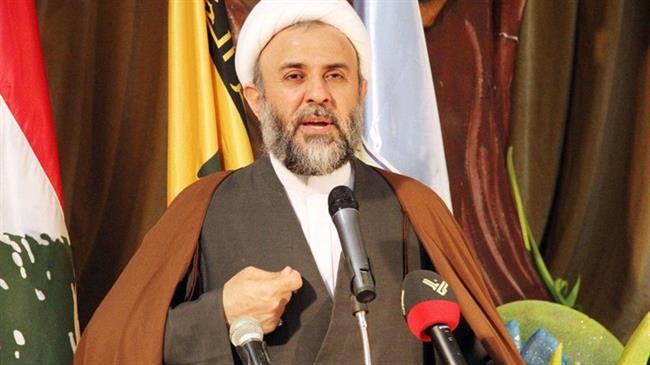
RNA - “Saudi Arabia's latest interference in Lebanon's internal affairs is embodied in meddling in the country's upcoming parliamentary elections. Saudi interventions are pitting the Lebanese against each other, and creating divisions and political tensions among them,” Deputy Chairman of Hezbollah's Executive Council Sheikh Nabil Qaouq said on Saturday.
He added, “Saudi Arabia wishes to change Lebanon’s political equations through interfering in the elections, collecting information about composition of future electoral lists and supporting candidates that could challenge Hezbollah.”
Commenting on the ongoing military drills between the US and Israeli armies in the southern areas of occupied Palestinian territories, the senior Hezbollah official pointed out that “the maneuver officially documents Israel's recognition of the fact that Hezbollah can reach the depth of Israel, and that Israel has no ability to confront the resistance movement’ rockets.”
He stressed that Hezbollah is now the main obstacle to Israel’s expansionist policies in the Middle East region.
On October 30 last year, Saudi Minister of State for Persian Gulf Affairs Thamer al-Sabhan issued threats against Lebanon's government as well as Iran and Hezbollah via Twitter, stating that the movement needed to be “toppled” in Lebanon.
The Saudi minister also warned in an interview with Lebanese MTV television station that there would be “astonishing” developments to “oust” Hezbollah.
He also said that Saudi Arabia would deal with Lebanon's government as a hostile administration because of Hezbollah's power-sharing role in it.
According to Press TV, on November 4, 2017, Lebanese Prime Minister Saad Hariri announced his resignation in a televised statement from Saudi Arabia, citing many reasons, including the security situation in Lebanon, for his sudden decision. He also said that he sensed a plot being hatched against his life.
He returned to Beirut on November 21. All political factions in Lebanon had called on him to return back home.
Top Lebanese officials and senior politicians close to Hariri had earlier said that he had been forced to resign, and that Saudi authorities were holding him captive.
Lebanese President Michel Aoun had also refused to accept Hariri's resignation.
847/940